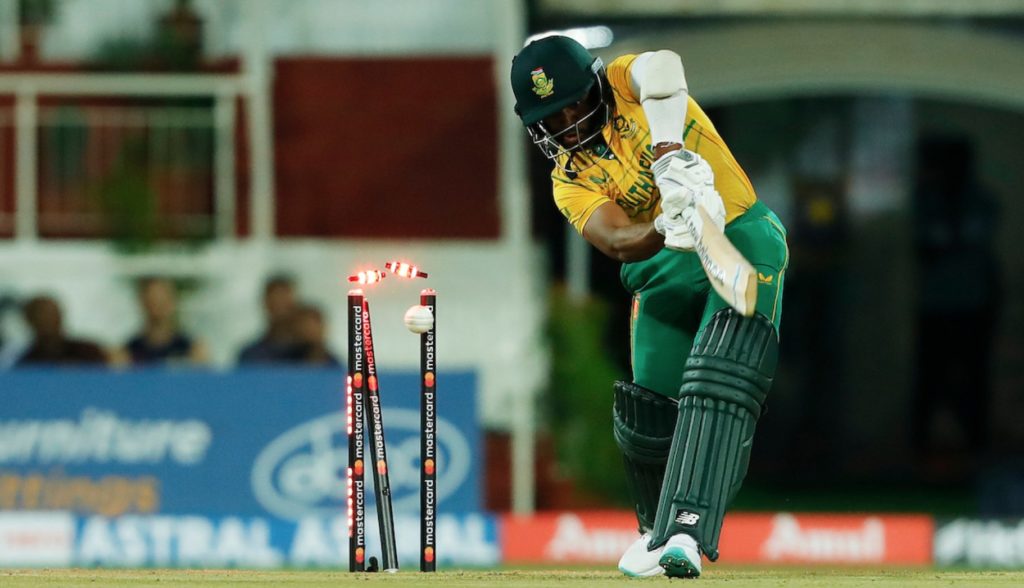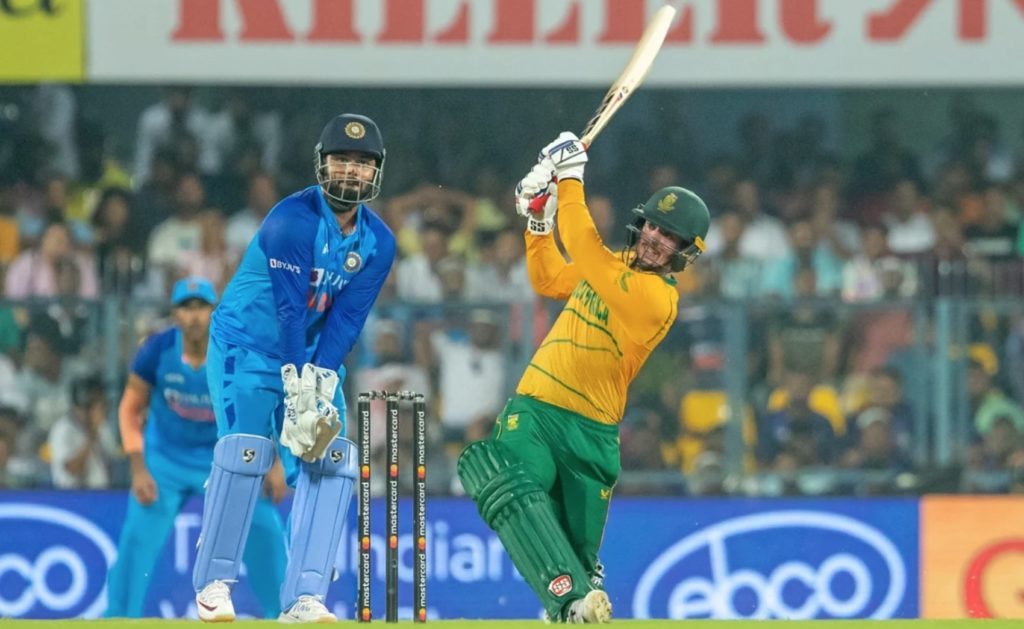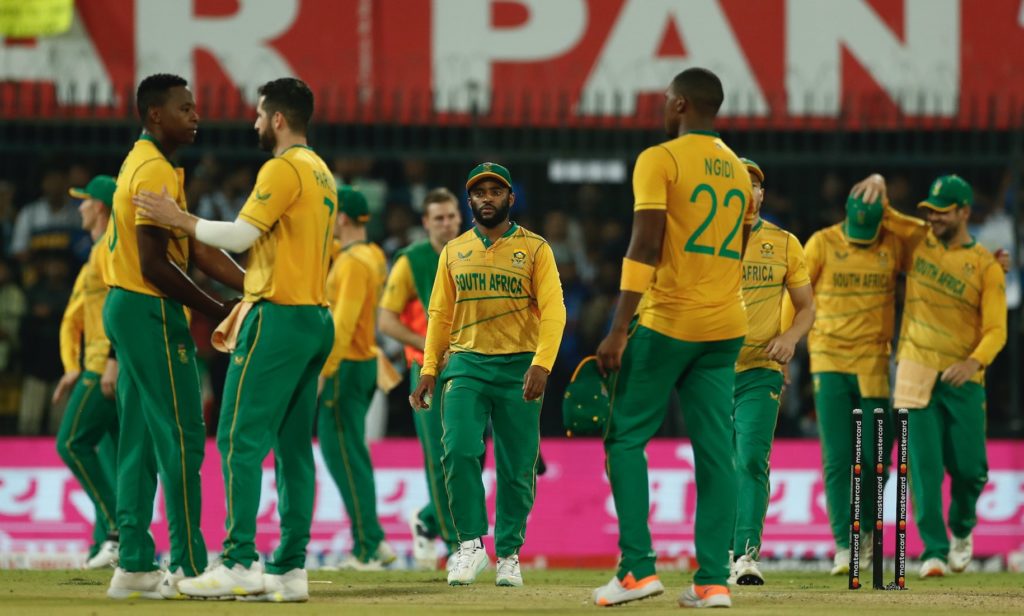The India series was revealing on a number of fronts and a precursor to an early flight home from the T20 World Cup, writes RYAN VREDE.
I was dismayed at the “positives” so many of the Proteas fanbase, and some in the media, took from the team’s 49-run victory on Tuesday. The match was without any pressure for either team, with India already having wrapped up the series.
Pressure, specifically the effective negotiation thereof, is a defining characteristic of cricket teams that win significant trophies. The Proteas exhibited an insufficient measure of temperament in the first two matches of the series, struggling with the bat in the first, and falling apart with the ball in the second.
The third was therefore rendered meaningless, but for the imagined meaning anyone can ascribe to an encounter shorn of a key element – pressure.
The Proteas start their T20 World Cup campaign in 19 days. Given the scale of their problems in key areas and, in most cases, the absence of any ready-made solutions, the nation must brace for another cricket-related heartbreak.
The India series exposed the Proteas in these significant areas …
Incompetence from the selection panel compromises the team
A year ago, I wrote that Temba Bavuma needed strong backing as a skipper and player. As recently as June, I advocated for a rehabilitation plan for him. But I can’t support a player who so clearly lacks the competency to play elite-level T20 cricket.
This is not to say Bavuma is a bad cricketer. He is, however, presently a bad T20 player.

Bavuma, though, will be backed into and throughout the World Cup. He doesn’t pick himself, so the selectors must face severe criticism for failing the team and its support base. Their gross dereliction of duty amounts to sabotage.
Not only is Reeza Hendricks, an in-form opener, being ignored, but they also have yet to explain Faf du Plessis’ exclusion in any satisfactory way. He is available and scoring runs on the T20 circuit. He has a proven international record and is the type of player who takes the Proteas from World Cup place fillers to World Cup contenders.
The selectors must be held to account for their failures.
They have too many key players struggling with inconsistent form
Thankfully, Quinton de Kock emerged from his horrendous run of form. So, too, Rilee Rossouw. The Proteas need that form to sustain. They can only hope it does, and hope is not a solid foundation upon which to build a World Cup campaign.

Anrich Nortje is another who concerns me. He went at nearly 14 runs in his three overs in the first and second match, before being dropped for the third. He is a fine bowler when he touches the ceiling of his potential but, in India, he looked flat.
Elsewhere, Wayne Parnell, Lungi Ngidi, and Tabraiz Shamsi have tended to float between the sublime and the mediocre.
Unfailing consistency is critical to any World Cup challenge, and the Proteas are just not there as a collective.
Still no established death-bowling combinations
This issue continues to compromise the Proteas. Setting aside the first T20I against India, in which the hosts chased a small total, the death bowling has been a concern.
The Proteas conceded 82 runs in the last five overs of the second match. Upon reflection, this contributed massively to their series defeat as they lost the match by a 16-run margin.
They were decent in this dimension of the game against England a month ago, conceding 43 in the first T20I, before blitzing the hosts with the ball early, rendering the death overs insignificant.
There are bowlers who, at their highest level of execution, are capable of excelling at the death – Kagiso Rabada, Wayne Parnell, Lungi Ngidi, Anrich Nortje and Dwaine Pretorius among those. But they’ve got to find an effective and replicable method that works for them at the death.
They can’t get on a hot run
To win a World Cup in its current format, the champion team usually has to win seven matches on the bounce. There is room for one defeat in the group stage, but then you have to rely on other results favouring you.
The Proteas’ longest winning streak under head coach Mark Boucher is seven matches. However, that was against the West Indies, Ireland and Sri Lanka, all of whom had to play a qualifying tournament to get into the T20 World Cup.
So, the Proteas don’t have a reference point for a hot run against elite opposition. They’ve won a series against elite competition, sure. But the World Cup demands a level of consistency that eludes them at present.
Smashing an understrength India in a meaningless match should not raise any hopes for a successful World Cup campaign. It showed the Proteas can be a one-off force in the format but are too raw to worry the format’s elite on a consistent basis.







